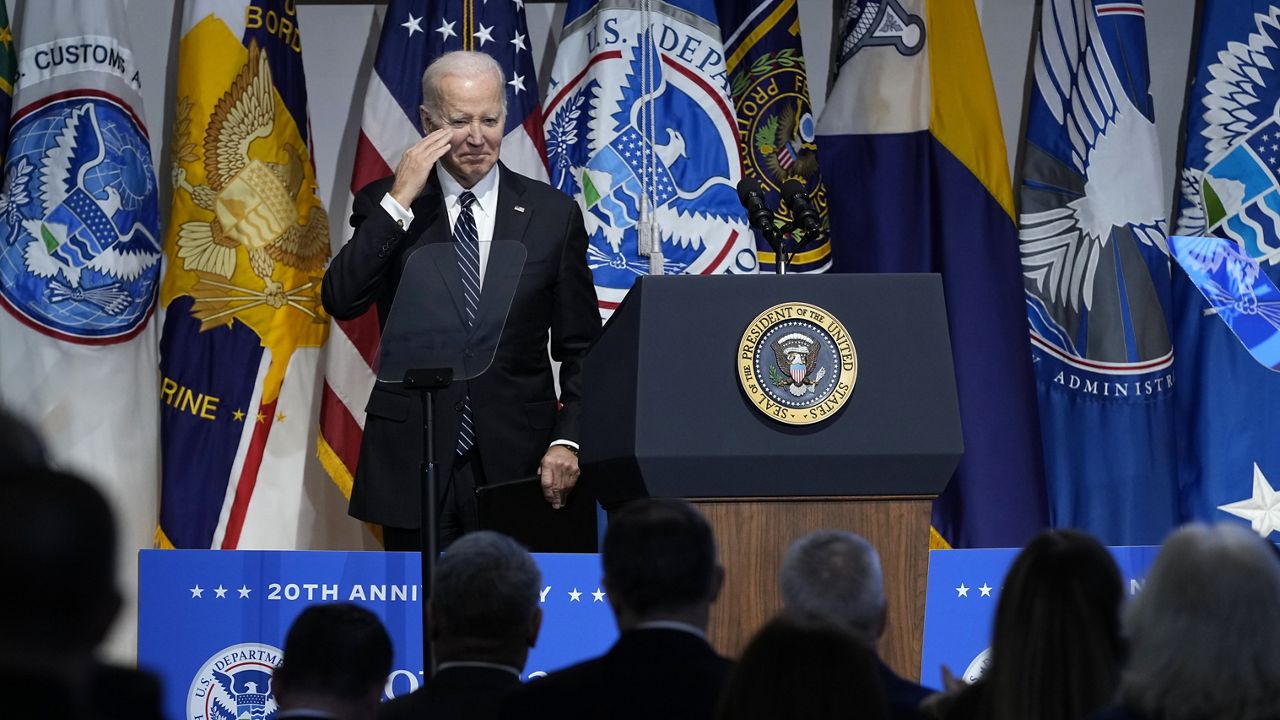President Joe Biden celebrated the work of the federal government’s youngest Cabinet department in a ceremony Wednesday, marking the 20th anniversary of operations at the Department of Homeland Security.
DHS oversees the United States’ borders, counterterrorism efforts, responses to emergencies such as wildfires and hurricanes, and several agencies, including the Transportation Security Administration and Secret Service.
It was created in 2002 in response to the 9/11 attacks the previous year, and it began operations when 22 separate agencies unified under the single department in 2003.
Biden traveled to the department’s headquarters in southeast Washington, D.C., on Wednesday to honor DHS employees and their work.
“I came for a simple reason: to say thank you,” Biden said.
“To stand up to fear and to make sure that Americans can still live their lives and dream their dreams. That's what all of you represent,” he added.
Though relatively new, DHS is the third largest department in Biden’s Cabinet. It has 260,000 employees, including about 32,000 who have worked there since the creation of the department, known as plankholders.
“The tragedy of 9/11 forced us to realize that our country was not prepared to address the threat of foreign terrorism," DHS Secretary Alejandro Mayorkas said Wednesday. "And we resolved then to never again take our security for granted."
The secretary listed new and evolving threats to the nation’s security, including cyberattacks, lone offenders and the spread of radicalization online.
“Congress may not have predicted today's diverse and complex threat environment when our department was first created,” Mayorkas added. “But our mission has never been more vital. Our components have never collaborated more closely. And our nation has never been more prepared because of your unwavering commitment and boundless ingenuity.”
Former President George W. Bush, who directed the creation of the department, and the first DHS secretary, Tom Ridge, also spoke briefly at the ceremony Wednesday in recorded videos.
DHS encapsulates more than a dozen agencies, including U.S. Customs and Border Protection, the Coast Guard, the U.S. Secret Service, Immigration and Customs Enforcement, the Federal Emergency Management Agency and the TSA.
The Homeland Security Department, though, has perhaps been most often thrust into the spotlight for a controversial policy area: the U.S.-Mexico border.
Border agents and officials have faced an unprecedented number of arrivals in the first two years of the Biden administration especially and relied on COVID pandemic restrictions to turn many migrants away.
As that policy comes to an end, the department has tightened its restrictions on asylum-seekers and border processing, to the chagrin of immigration advocates and Democrats.
And a recently proposed rule would create the narrowest access to asylum under Biden yet, partially relying on a mobile app that directs people to claim asylum through a limited number of appointments per day.
“We still don't have the capacity to process people at ports of entry. Think about that,” Dylan Corbett, executive director of the Hope Border Institute, said when speaking about DHS’ 20th anniversary on Wednesday. “And we still don't have the capacity to process asylum-seekers. We want to funnel them through the ports.”



